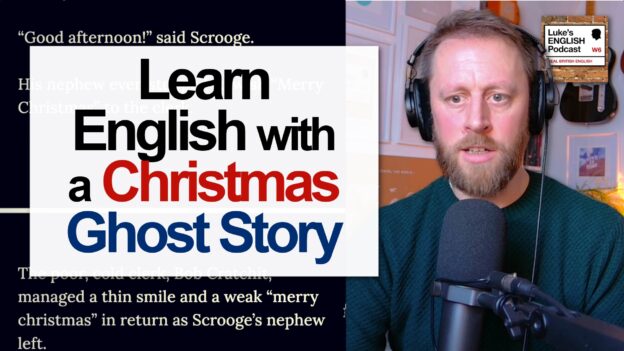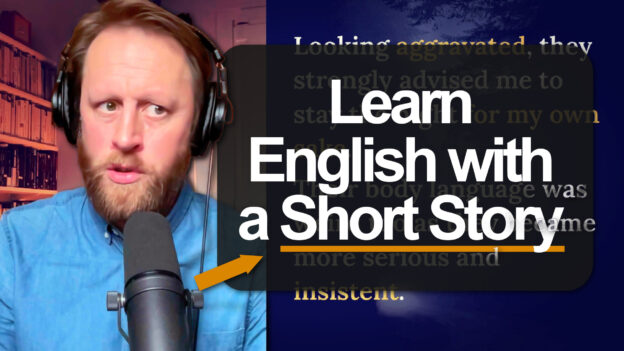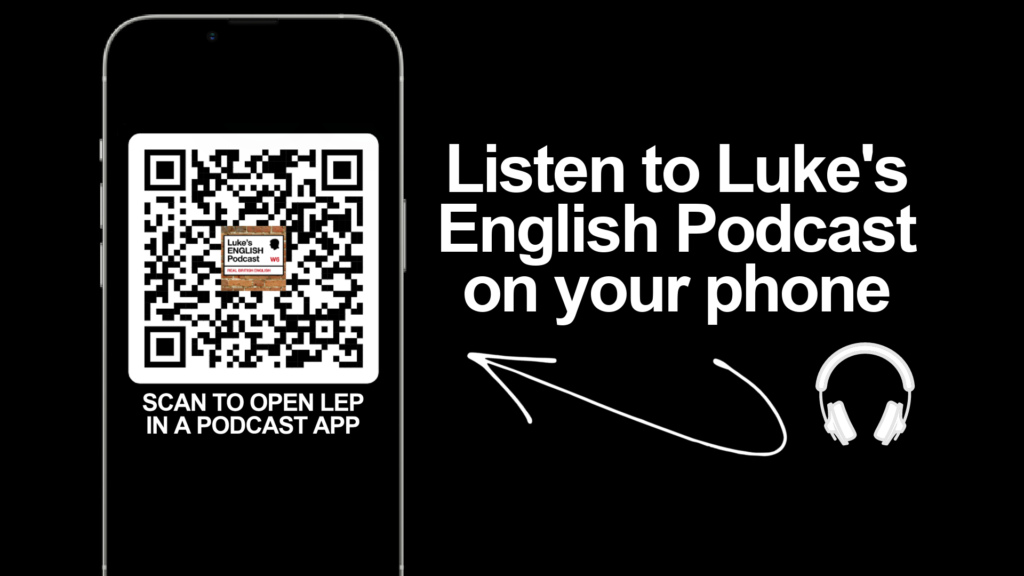A spontaneous monologue about being taken by surprise by public holidays in May (in France), a podcast recommendation, and seeing a hard-rocking and hilarious band perform live in a big arena last week. Includes a song at the end as a tribute.


A spontaneous monologue about being taken by surprise by public holidays in May (in France), a podcast recommendation, and seeing a hard-rocking and hilarious band perform live in a big arena last week. Includes a song at the end as a tribute.

Amber & Paul return to the podcast for another tangential conversation about various things, including why Paul is angry 😤, how Amber gets crushed in her own bed 🛌, how our British children don’t need to wear coats 🧥, the special gifts Luke has prepared for Amber & Paul 🎁, the highs and lows of Paul’s global comedy tour 🎭, how he’s been telling the Russian joke on stage 😐, Amber’s recent trip to London 🇬🇧, The Beatles’ “Now & Then” 🎶, the next step in Paul’s career ⏩, Amber’s kids saying more funny things 👧👦💬 and more…
In the next episode we’re playing The Lying Game. If you want to listen to previous lying game episodes, check out this list 👇
308. The Lying Game (Part 1) with Amber & Paul | Luke’s ENGLISH Podcast
309. The Lying Game (Part 2) with Amber & Paul | Luke’s ENGLISH Podcast
317. The Lying Game 2: The Rematch (Part 1) with Amber & Paul | Luke’s ENGLISH Podcast
318. The Lying Game 2: The Rematch (Part 2) with Amber & Paul | Luke’s ENGLISH Podcast
436. The Return of The Lying Game (with Amber & Paul) [Video] | Luke’s ENGLISH Podcast
642. The Lying Game Returns (with Amber & Paul) | Luke’s ENGLISH Podcast
663. The Lockdown Lying Game with Amber & Paul | Luke’s ENGLISH Podcast

Join me as I talk without a script about lovely cold weather ❄️ being too lazy to wash my cups 🍵 feeling exhausted because my son won’t sleep 👶😮💨 New Year’s Eve celebrations 🛋 performing stand up comedy to 4200 people 🎤 a recommended YouTube channel about adventurous missions in the UK countryside 🥾 and recent horror films I’ve seen 🙀.

Listen to me telling this classic Christmas ghost story – “A Christmas Carol” by Charles Dickens. I have read this story on the podcast before (in episode 320) but it’s a good one so let’s do it again, shall we? 🎅

Here’s a bonus episode, and it’s for fans of my brother’s music. James’ new album is out now and so we decided to record this episode in order to promote it and also to talk generally about music, including a chat about favourite albums, first albums we ever bought, albums we discovered in our parents’ record collection and more.

🎧 Learn English with a short story. 🗣 Listen & repeat after me if you’d like to practise your pronunciation. 💬 Learn some vocabulary in the second half of the video. 📄 I found this story in answer to a post on Quora.com asking about true scary stories. I thought I could use it to help you learn English. Can you understand the story, and predict the twist at the end?
The Invitation
About 7 years ago I got an invitation to attend a dinner party at my cousin’s house. I have a pretty large family and I had never actually seen this particular cousin before. I had only ever spoken to him on the phone. I was surprised that his family unexpectedly invited me over, but I was curious to finally meet them.
The invitation had an address that I didn’t know and the GPS was unfamiliar with it too. It was in one of those areas where Google Maps doesn’t work properly because of poor phone reception,
so I had to use an old fashioned paper map. I marked the location on the map, tried to get a sense of where I was headed, and set off in my car.
As I was driving I started to notice how far I’d travelled into the countryside, away from civilization. I saw trees, farms and fields passing by. Just trees, farms, and fields, and more trees, more farms and more fields.
“Where the hell am I going?” I thought to myself. I’d never ventured out so far in that direction before.
I drove for quite a long time, trying to locate the address I had marked on the map.
The thing is, in this area, a lot of the roads don’t have names, or the names aren’t clearly marked by road signs. I just had to try to match the layout of the streets, to the layout I could see on the map.
I finally found a place at a location that looked like the one I had noted on my map. I was pretty sure this was the right spot, so I parked and got out of the car.
Approaching the house I noticed how dull and dreary it looked. It was completely covered in leaves, branches and overgrown trees.
“This can’t be it.” I said to myself.
But as soon as I walked onto the rocky driveway my aunt and uncle came out to greet me. They seemed excited and welcoming.
“Hello! Hello! Come in! Come in!” they said, beckoning me inside.
Walking into the house, I asked where my cousin was. Answering immediately one of them said, “Oh, he just went to run a few errands. He should be back later.”
I waited in their kitchen and we spent a couple of hours talking about my mother and my family. My aunt made a delicious homemade pot roast that I finished off in minutes.
After dinner we played an enduring game of Uno. It was surprisingly fun and competitive. My aunt in particular seemed delighted to be playing.
When we finished the game of Uno it was almost dark and there was still no sign of my cousin. My aunt and uncle assured me that he’d be back any time soon. Despite what they said, I decided that I had to leave.
It was almost dark outside and I knew it would be a nightmare to find my way out of this dreadful place after sunset, with no streetlights or road signs. As my GPS just wasn’t working, I asked my aunt and uncle the most efficient way to get to the highway.
They gave me a puzzled look.
“But, we thought you were staying the night?” they said.
I told them I couldn’t because I had work the next day and couldn’t afford to miss another day. “It’s much better if you leave tomorrow morning. Trust us. You’ll get lost” they said.
I shrugged it off and told them not to worry,
“Don’t worry. I’ve got a pretty good sense of direction. I could find my way out of the Sahara desert.” I told them.
Looking aggravated, they strongly advised me to stay the night for my own sake. Their body language was weird too as they became more serious and insistent. My uncle stood shaking his head, and my aunt began to move about the place, picking up a set of keys to unlock what I assume was a spare bedroom.
At this point I was getting annoyed and irritable. I sighed, “Fine I’ll stay the night then, but I have to get up very early for work.” I said. Both of them seemed strangely ecstatic that I was staying the night.
As soon as they went out of the room to get bed sheets and pillows,
I ran out of the door, got in my car and hastily pulled away. I know it was rude, but I suddenly felt the urge to get out of there, quickly.
It seemed to take me ages, but I finally found my way back to the main highway and drove back through the night, wondering why my cousin had never turned up.
I got home several hours later than I expected. It was after midnight and I didn’t want to wake my parents up. Climbing over my fence and entering the back door, I noticed that the kitchen lights were on.
As soon as I took my first step through the door, I saw my mom sitting there looking impatient.
“Where have you been?”
She asked.
“I was at aunt Debra’s. I told you.”
I replied.
“Then why did she call saying you never arrived?”
To this day, I still have no idea who I visited.
Read the original version on Quora.com


Join me for an unplanned rambling episode about various things including: hump day, bed bugs in Paris 🐞, fashion trends I followed when I was younger 👟👖, CDs 💿 vs cassettes 📼 vs vinyl 🎵, the most relaxing place in the world 🛏, Japanese zen gardens ⛩, Hunter S Thompson 🚬, the most disgusting job I ever had 🤮, and more…

Comedian Sebastian Marx returns to the podcast in order to talk about Yiddish words which have found their way into the English language, including common words like bagel, glitch and schmooze and plenty more.


These are the Yiddish words we discussed. Words marked with an X are the ones I couldn’t find in the Oxford Advanced Learner’s Dictionary.
I found 25/33 of the words in the Oxford Advanced Learner’s Dictionary (English).